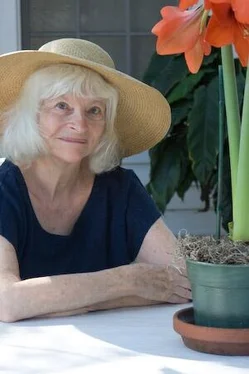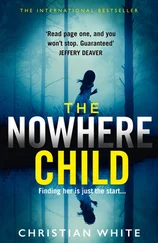“I didn’t want to spoil your fun.”
“When you don’t like it, it spoils it for me anyway,” he said flatly.
“Oh, Paul. I’m sorry.”
“I’m sorry,” Paul said simultaneously. He reflected that this had happened before with Katherine, many, many times, and felt: Oh, the hell with it. He swung his feet over the side of the bed and sat up.
“I guess I’m just out of practice,” Katherine added.
No reply. Paul continued to sit on the edge of the bed, his back to her. “What time is it really?” she asked. “It feels dreadfully late.” She held up her wrist, squinting at the luminous dots of the little gold watch which she never removed except to wash. “My watch says—good heavens—ten-twenty.”
“Uh. That’s Boston time. It’s three hours earlier here.”
“That seems so strange. Seven-twenty, then.” In the dark, she adjusted the luminous dots.
“I’m hungry,” Paul said. “Are you hungry yet?”
“I don’t know. I suppose I should try to eat something.”
“Let’s get up.”
Paul put on the light. The tiny room appeared around them: bare walls, bare floor, Katherine’s outsize Victorian furniture. Here was the elaborate marble-topped chest of drawers and bedside stand her parents had used, and their massive mahogany bed, carved with wooden fruit. Beside the bed stood the mop pail, full of wilted leafage—leaves sagging, and scarlet and golden flowers wilting for lack of water; collapsed on their stems, or fallen on to the marble tabletop.
2
PAUL SAT IN THE Publications Department of the Nutting Research and Development Corporation, surrounded by frosted glass. Actually only three sides of his office were frosted, but the view through his window, of smog-blurred roofs and smog-filled sky, gave much the same effect. The Nutting offices were on a hill a few miles from Paul’s house, and his window looked east over the city. On very clear days they said you could see the mountains, but there had been no such day since Paul’s arrival. It was half-past twelve, and he was hungry. He was waiting to go to lunch with his friend Fred Skinner, who occupied the adjoining office, but was now in conference with the head of the Publications Department, a man named Howard Leon.
For five weeks Paul had sat at his desk (of extreme modern design with an indestructible surface) in this office, with nothing to read except a few advertising brochures, personnel memos, and some more or less out-dated histories of California. His Secret clearance had not yet come through, and so hardly any Nutting publications had been available to Paul, nor had anyone been permitted to discuss Nutting matters with him. He read his books, and made notes on cards to the effect that the land on which the plant now stood was formerly part of a ranch owned by the Parducci family, or that forty-five per cent of the area of downtown Los Angeles was presently occupied by road surfaces. Sometimes he gazed out the window, or wrote letters. He described to his friends the speed and excitement of the city: the towers of apartments and oil-wells above swamps where the tyrannosaurus had leapt upon the brontosaurus in battles now petrified in rock for tourists; the tennis courts never muddied by rain; the pretty, tanned girls; the warm sea stroking the long, sandy beaches.
He also wrote to his parents in Columbus, Ohio. Los Angeles was amazing; you could almost imagine the city growing around you. Wherever you looked you could see the red and orange iron skeletons of tall buildings rising above the palms. The dust of excavation hung in the air, and the noises: the bang, bang, of construction and demolition, the groans of trucks hauling dirt up and down the hills. Even the faint shudders of earthquake or landslide, and the sonic boom as some aircraft broke the sound barrier, seemed to be part of it. The local and state political situation favored this growth because—and Paul went on to explain why. His father was a real estate agent who also owned and managed business properties. He had done well, and was active in civic affairs, but he also found time to read current non-fiction and took an interest in the world situation. In a way you could say—that is, Paul’s father could, and frequently did, say—that his hobby had become his son’s profession. All the same, he was not a bad guy.
Paul’s mother painted, and made pottery; she was in several local art groups, and an expert bridge player. For her he described the wonderful climate, the dry light, the white-walled houses with their orange and lemon trees, the Santa Monica mountains rising smoky green and brown against the north edge of the sky. Katherine’s sinuses were bothering her, he wrote, but he had never felt better. His mother was interested in people’s health. She had trouble with her own (indigestion, insomnia), which sometimes made her a little difficult. Still, she meant well.
Today, however, Paul’s desk was covered with papers relating to Nutting and its works, and so was his bookcase. Last Friday his clearance had come through, and materials had been pouring in ever since. Piles of dusty, bulky manila folders; typed and mimeographed and printed drafts of proposals in binders; statistical reports, financial reports, departmental and individual reports; carbon copies of letters, tables, graphs, estimates, diagrams, and memoranda. Apparently it was intended that he should read every piece of paper at Nutting.
Paul preferred this glut to the previous famine; he had the historian’s love of primary source material, however untidy. He would mine the significant facts out of the mountain of processed wood pulp and erect them into an elegant and accurate record of the spectacular growth of a southern California corporation. He had in mind something which would both satisfy Nutting and (through a judicious use of irony and comparison) interest and entertain other historians. He had no instructions or outline to go by; the company had shown its confidence in Paul by giving him a remarkably free hand.
In front of him now was a large pile of memoranda marked Confidential, mostly dealing with office regulations. He leafed through them rapidly. Confidential was the lowest security classification; until recently Paul himself had been classified as Confidential. There was no lesser rank: just as the smallest bottle of soda one can buy now is the Large, so everyone admitted through the plant gate, and every memorandum, was designated at least as Confidential. Most people and documents were Secret, and some were Top Secret. Like the documents, every employee wore his classification in full view, in the form of a large round plastic badge bearing his name and photograph and the name of the company. Paul had worn this badge every working day for six weeks, and he still felt it to be embarrassing and ridiculous. The wearing of such a label, he thought, implies that one is continually among strangers or fools, like an exhibit in a museum.
Whenever he raised his eyes from his desk, Paul’s attention was drawn to a large notice hanging opposite:
SECURITY MEANS YOU
Making Security Work Requires the Full Cooperation of Every Employee of This Corporation. REMEMBER: Any Danger to Our Security Is Potential Danger to Our Country and Way of Life.
He heard Fred Skinner come back into his office next door, so he shoved the memos aside and went in.
“Ready to eat?”
Skinner did not answer, but continued to sit on the edge of his desk in an attitude of angry dejection. He was a small, spare, muscular man of about thirty-five, partially bald. The photograph on his badge showed him with his habitual monkey-like grin, in strong contrast to his present expression. The badge of Paul, who was now smiling, displayed the opposite contrast. When he had stood before the camera in the Personnel Office he had tried to look serious, and so his photograph had a solemn expression—like that of a depressed twin brother, whose portrait he had chosen to wear over his heart.
Читать дальше












